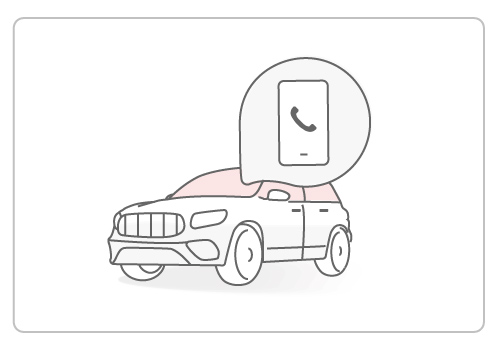
Written by Kayla Jane Barrie Updated on Dec 15, 2025 9 mins read

Distracted driving is one of the biggest issues on Ontario roadways today. It has surpassed impaired driving as the number one killer on the roads, and it is an issue that drivers need to take more seriously. 1 in 5 road fatalities are attributed to driving while distracted.
This is very concerning as distracted driving is preventable. If each driver were to do their part and be more dedicated to avoiding driving while distracted, countless accidents, injuries, and deaths could be prevented on Canadian roads.
Fines for partaking in this driving habit are now among the highest in Canada, and distracted driving can increase your insurance. Here’s what you need to know about the fines and laws for driving distracted.
Distracted driving is the act of driving while being distracted by other things or activities that take a driver's attention away from the road. Mobile phones, texting, eating, talking with other passengers, and changing the radio or GPS are common distractions.
Driving while distracted is dangerous because it increases the likelihood of an accident. It takes a driver's eyes and attention off the road and compromises the safety of the driver, passengers, other vehicles, and pedestrians.
The distracted driving laws in Ontario have changed over the past few years. According to the Ontario Ministry of Transportation, it is against the law to:
Cell phones are not the only devices restricted by Ontario's 2024 distracted driving laws. Here are some common handheld devices that you should NEVER use while driving:
To clear up any misunderstanding as to what is considered distracted driving and what is not, here is a distracted driving definition from the RCMP:
“Distracted driving is a form of impaired driving as a driver's judgment is compromised when they are not fully focused on the road. Distracted driving qualifies as talking on a cell phone, texting, reading (e.g., books, maps, and newspapers), using a GPS, watching videos or movies, eating/drinking, smoking, personal grooming, adjusting the radio/CD and playing extremely loud music. Even talking to passengers and driving while fatigued (mentally and/or physically) can be forms of distracted driving.”
According to Section 78 the Highway Traffic Act :
78. (1) No person shall drive a motor vehicle on a highway if the display screen of a television, computer or other devices in the motor vehicle is visible to the driver.
2. Part VI of the Act is amended by adding the following section :
Handheld devices prohibited78.1 (1) No person shall drive a motor vehicle on a highway while holding or using a handheld wireless communication device or other prescribed device capable of receiving or transmitting telephone communications, electronic data, mail or text messages.
Entertainment devices(2) No person shall drive a motor vehicle on a highway while holding or using a handheld electronic entertainment device or other prescribed device, the primary use of which is unrelated to the safe operation of the motor vehicle. Hands-free mode allowed
(3) Despite subsections (1) and (2), a person may drive a motor vehicle on a highway while using a device described in those subsections in hands-free mode.
Distracted driving fines and penalties continue to change in Ontario. Drivers must know the repercussions of having a distracted driving charge on their record. Drivers can no longer get away with a warning if caught driving while distracted. You will be fined and subject to demerit points, increasing how much you pay for car insurance in Ontario.
| Distracted Driving Conviction | Fine | Demerit Points | Driver’s License Suspension |
|---|---|---|---|
| First conviction | Fine up to $1000 (minimum fine of $615 if settled out of court) | Three demerit points | Three-day suspension |
| Second conviction within 5 years | Fine up to $2000 | Six demerit points | Seven-day suspension |
| Third & subsequent convictions within 5 Years | Fine up to $3000 | Six demerit points | 30-day suspension |
Novice drivers (G1, G2, M1, M2 licences) face the same fines and penalties as fully licensed drivers. You will not receive demerit points. You will face the following suspensions instead:

Certain hands-free devices, such as GPS, hands-free phones, built-in display screens, and other tools, do not fall under the current distracted driving laws.
Here is a list the MTO provides for permitted hands free devices:
Here are some shocking statistics about distracted driving in the province:
Here are some statistics around distracted driving in Canada:
There are some exceptions and situations where safe cell phone use is permitted. You can call 911 in an emergency and use handheld devices when you are lawfully parked or have safely pulled off the road without impeding traffic.
The RCMP explains: “There are special circumstances under which it is safe to use a cellular device. If you see a hazardous driver swerving or driving erratically, safely pull over with your hazard lights and call 9-1-1. Gather as many details as you can, including the direction in which the car was going, the street, and the vehicle make and model. Knowing the license plate number can help too.”
Emergency personnel such as police, firefighters, and EMS can use cell phones while driving. “Commercial and public transit drivers, as well as public service workers who are engaged in the performance of their duties, will be able to view the display screens of mobile data terminals and logistical tracking and dispatching devices,” says MTO.
There are plenty of ways people can get distracted while driving. Here’s a ranking of secondary behaviours among drivers:
Distracted driving is dangerous because it takes your eyes and attention off the road. It only takes a second for something to happen, and you need to be prepared to react. Distracted driving can lead to:
Being convicted of distracted driving while putting others in danger could have even more severe consequences. MTO explains:
“Drivers who endanger others because of any distraction, including handheld and hands-free devices, may still be charged with Careless Driving under the Highway Traffic Act or even Dangerous Driving under the Criminal Code of Canada."
If you are convicted of careless driving as a result of distracted driving:
Depending on the result of driving while distracted, you could also face dangerous driving charges, which is a criminal offence:
In general, driving distractions can be categorized into three types:
Here are 11 great tips to stop being a distracted driver:
Distracted driving laws in Canada vary from province to province. Currently, all 10 provinces and the Northwest Territories have laws against distracted driving. Here are some interesting findings of the distracted driving laws in Canada:
Tens of thousands of auto accidents are caused by distracted driving in Ontario each year. An estimated 80% of all accidents are caused by driving while distracted.
In Ontario, distracted driving is responsible for 18% of all road fatalities. In 2022 alone, 105 Ontarians died as a result of distracted drivers, compared to 348 deaths across Canada.
Yes. Eating food while driving is considered a form of distracted driving, but it is not illegal.
Drinking coffee while driving could be considered distracted driving if you cause an accident. It is not technically illegal.
You have a choice when you get behind the wheel. Make a smart choice and choose NOT to drive while distracted. Put the phone away, focus on the road, and keep car insurance more affordable.
| Categories | Auto |
|---|---|
| Tags | TicketsDriving Tips |
Read our insurance blog to get helpful tips, information and news.
Find out if a seatbelt ticket will raise your car insurance rates and how insurers view seatbelt violations.
Ontario’s Project CHICKADEE dismantled a $25 million auto theft ring. Discover how this massive bust targets export enablers and what it means for rising Canadian insurance premiums.
Think refusing a breath test helps your case? In Ontario, it results in a minimum fine of $2,000 and a criminal record. Compare the penalties and protect your future.
Impaired driving in Ontario is a serious offence. Learn about impaired driving fines, penalties, statistics and other important information all drivers in Ontario need to be aware of before they get behind the wheel.